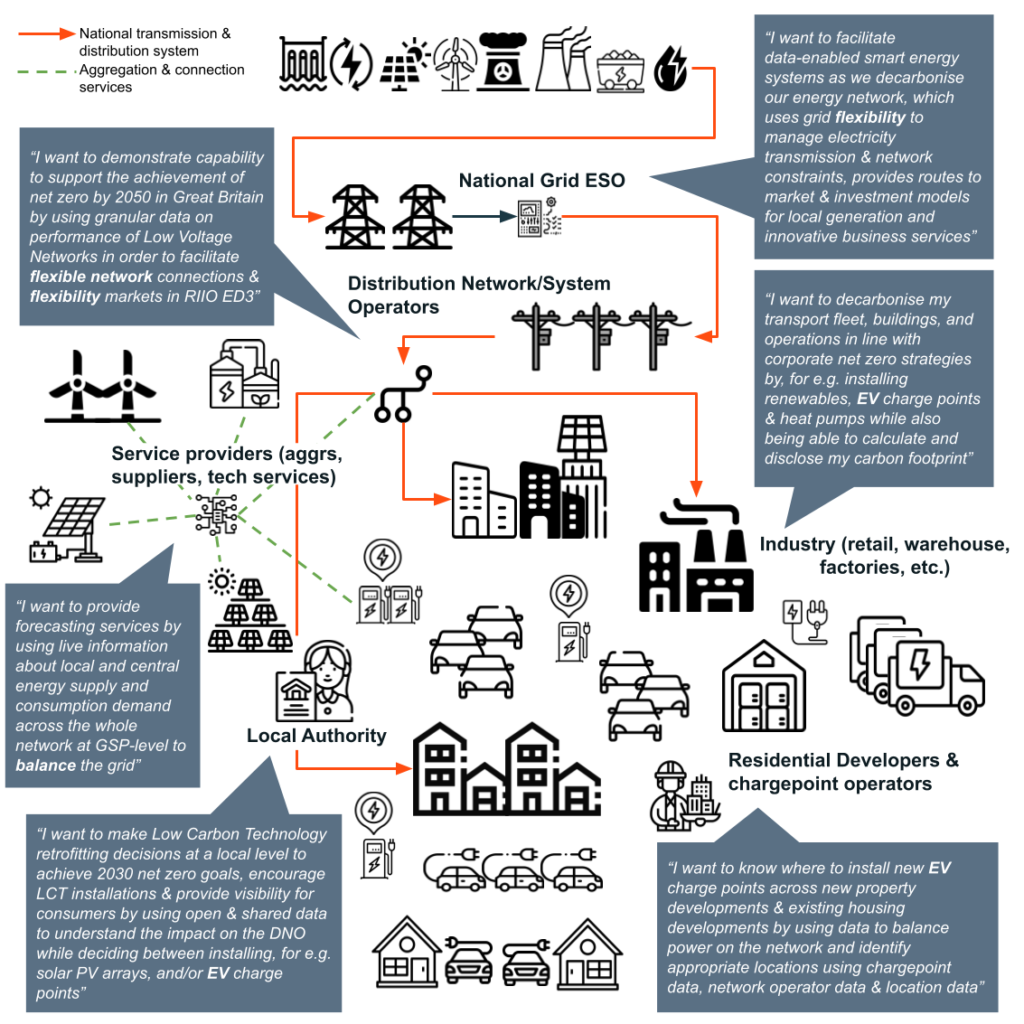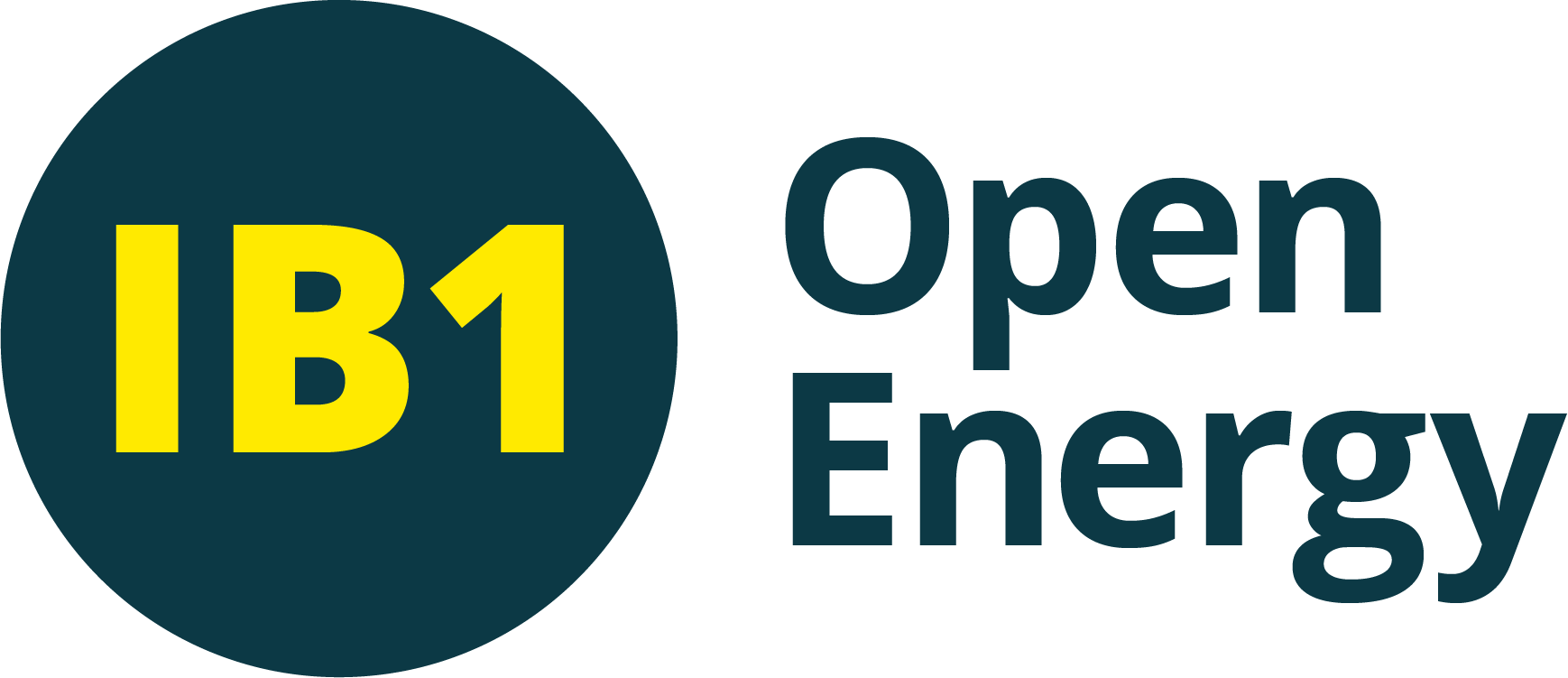Use cases – Priorities
Background
As part of the Modernising Energy Data Access (MEDA) competition, a core use case was developed to demonstrate the benefits of an Open Energy Search and Access Control. This focused around a Local Authority looking to understand the impact of retrofitting Low Carbon Technologies and Electric Vehicle (EV) charging points across a large estate.
As part of our user needs-based approach, two further use cases are being developed. These will further develop the value of better data access: making energy data more robust, shareable, and easily accessible, and outlining the benefits of the Open Energy approach to stakeholders across the market.
Use case prioritisation process
Step 1
Members of the Open Energy Steering and Advisory Groups, including representatives from government, regulators, consumer bodies, trade associations and industry, identified potential areas of focus for new use cases.
Broad areas were considered during this process, including flexibility, electric vehicles (EVs), fuel poverty, heat pumps, smart meter adoption rates, and the transition away from gas boilers/heating.

Step 2
Following prioritisation discussions with the Steering and Advisory Groups, focus was narrowed to two candidates:
- Electric Vehicles (EVs)
The switch from conventionally-fuelled to emission-free vehicles forms a core part of the UK government’s Net Zero strategy, with the adoption of EVs expected to increase at an exponential rate over the next decade. To support this uptake, it is essential that a comprehensive charging infrastructure is in place. New legislation requiring all new building developments to have EV charging points will contribute to this.
However, as it stands, it’s felt that the grid lacks enough capacity and/or flexibility to support the anticipated increase in electricity demand as a result of the mass adoption of EVs. Better, and better access to, data will help ensure that an increase in the number of EVs – and EV charging points – does not place unsustainable demands on our energy resources. Our EV use case will explore this opportunity through the lens of a specific stakeholder, map the data value chain required and engage with actors within it.
- Flexibility (‘flex’)
The way the UK sources its energy is continuing to evolve away from the certainty of electricity supplied by a relatively small number of large power stations, to the distributed energy supply of multiple low-carbon technologies. The ability of these distributed resources to supply electricity at given times of day or year is more variable and less linear and the costs of managing this variability are high. In parallel, customer demand patterns are changing as the UK electrifies its heating, transport, and related areas. This will require a move to a far more flexible system – in both supply and demand. As with EVs, our flex use case will demonstrate how Energy Search and Access Control could support this flexibility, from the perspective of a particular stakeholder (for example, a flexible asset owner), map the data value chain required, and engage with actors within it.
Step 3
Members of the Steering and Advisory Groups have put forward specific problem statements in each of these areas that improved access to energy data could help address. Over the period from December 2021 to February 2022, the Open Energy programme will work with stakeholders in each of these priority areas to detail the specific use cases for development, with a view to publication by the end of February 2022.
If you would like to contribute to the development of either or both of our use cases, please email us at openenergy@icebreakerone.org.
To join our Open Energy community, sign up here.
